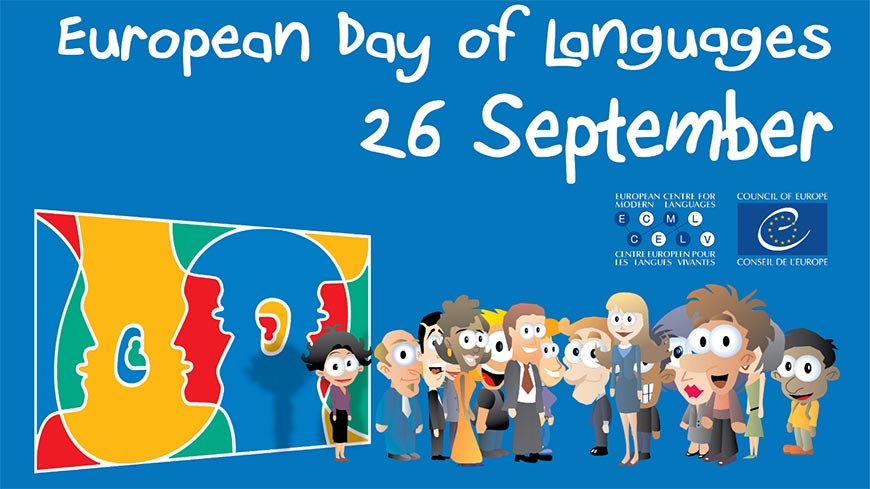26 September 2021 marks the 20th anniversary of the European Day of Languages. Since 2001, the Day has been celebrating the rich tapestry of languages coexisting in Europe and beyond. According to Council of Europe Secretary General Marija Pejčinović Burić “The European Day of Languages reminds us that all voices matter and that together we can overcome linguistic and cultural divides in our societies”.
Among this year’s happenings, the European Centre for Modern Languages of the Council of Europe (ECML), which encourages excellence and innovation in language teaching, is taking part in a key event in Graz (Austria) on Friday 24 September.
A wide range of other initiatives are planned across the continent in this celebration of 20 years of linguistic and cultural diversity, among them: the Fête des langues européennes in Aix-en-Provence (France), the Foreign languages we can speak survey in Haabneeme (Estonia), the Språkdagkonferanse in Halden (Norway), an EDL Language festival in Ljubljana (Slovenia), Тhe beauty of words - Лепота речи language week in Lipe (Serbia), The gate of languages unlocked competition in Zlaté Moravce (Slovakia), Plurilingual Venice. Yesterday as today: open to the world in Venice (Italy), organised in cooperation with the Council of Europe Venice Office, and an online conference organised by the European Commission entitled Language competences in the European Education Area.




